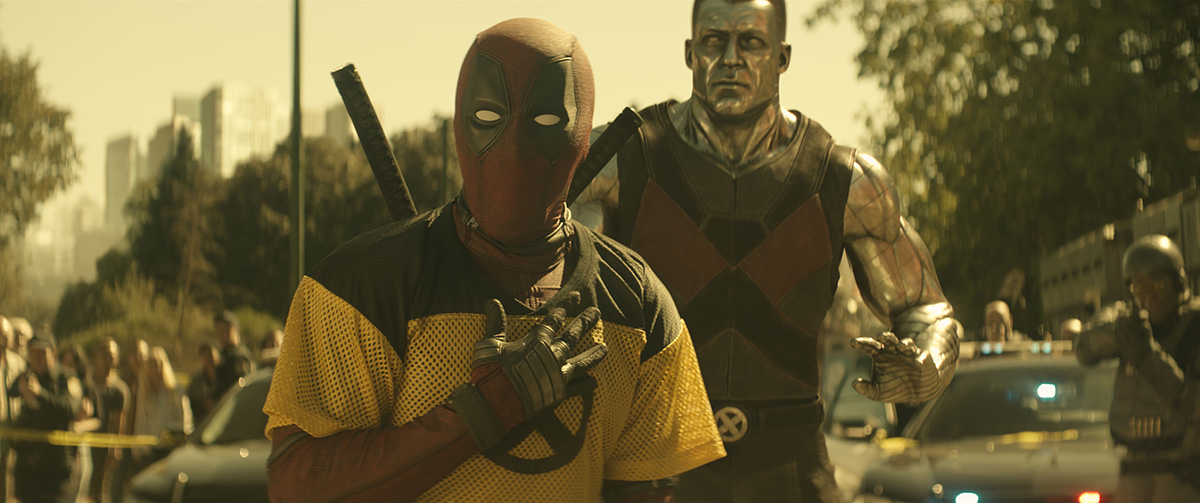
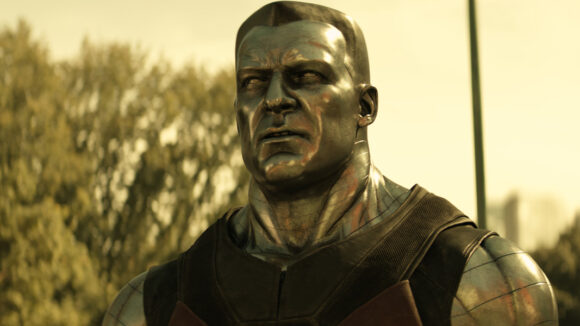
What You Need To Do To Make A Metal Character Like Colossus From ‘Deadpool 2’
In this age of superhero blockbusters, who knows what comic book character a vfx artist might be called upon to work on next, and what powers and features will need some vfx magic. The latest superhero with some very unique features to receive the visual effects treatment is Colossus in David Leitch’s Deadpool 2.
Made of metal, but human-like in appearance, Colossus required some new ways of thinking about animating a character. That work was led by vfx studio Framestore (a different studio, Digital Domain, had brought Colossus to life for the first Deadpool film). The metal attributes meant a certain kind of ‘stiffness’ always had to be present, although at the same time Colossus also had to move freely and fight ferociously.
Framestore tells Cartoon Brew how they went about making the eight-foot tall Colossus, including how an actor was filmed on set, what body and facial capture was done, and the way this was translated to body and facial animation.
How to capture a metallic man
Not one but two actors would ultimately be stand-ins for the cg Colossus. On set, stunt performer Andre Tricoteux wore a motion capture suit with an extended helmet that matched the height of the final cg character. Tricoteux also wore, for lighting reference and interaction, a collection of clothing including gloves, a chest piece, and strips of metal. He was there with the actors so that they had eyelines and for the filmmakers to frame shots.
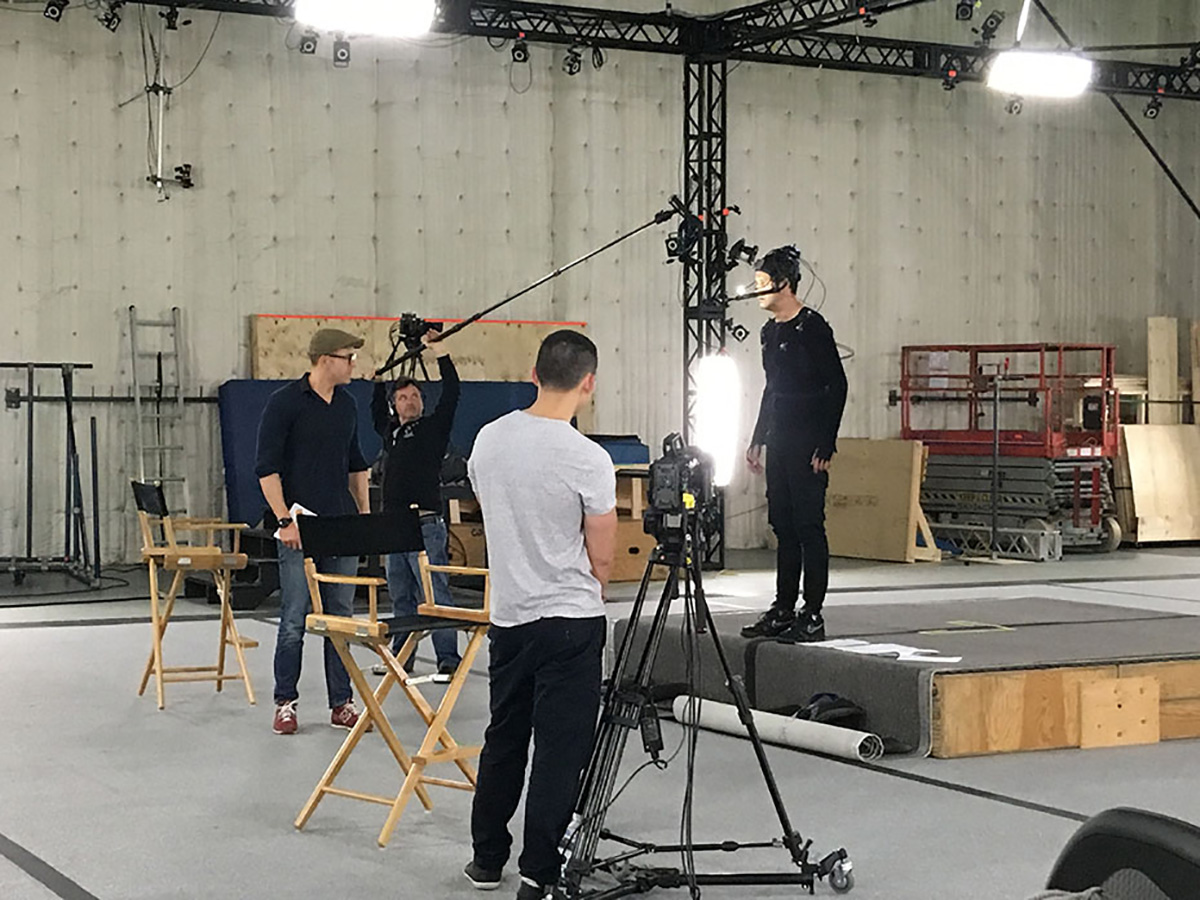
Then, actor Stefan Kapicic – who is the voice of Colossus – also performed a round of body and facial motion capture. He would sometimes wear a helmet-mounted facial capture rig, or perform in front of a specialized camera capture unit to deliver dialogue for specific scenes.
Translating facial mocap to a metal face
Although it had that facial capture data, Framestore wound up using the capture only for reference and instead reproduced a matching version with the studio’s own facial rig. “Since we adjusted his facial animation so much, it was just simply more efficient to spend some time matching the performance with our own rig and then work from there to create the desired face made of metal,” explained Framestore animation supervisor Bernd Angerer, who worked with the production’s overall visual effects supervisor Dan Glass. “It looked similar enough to recognize the original performance but had that special metallic feel that we didn’t get out of just using the data.”
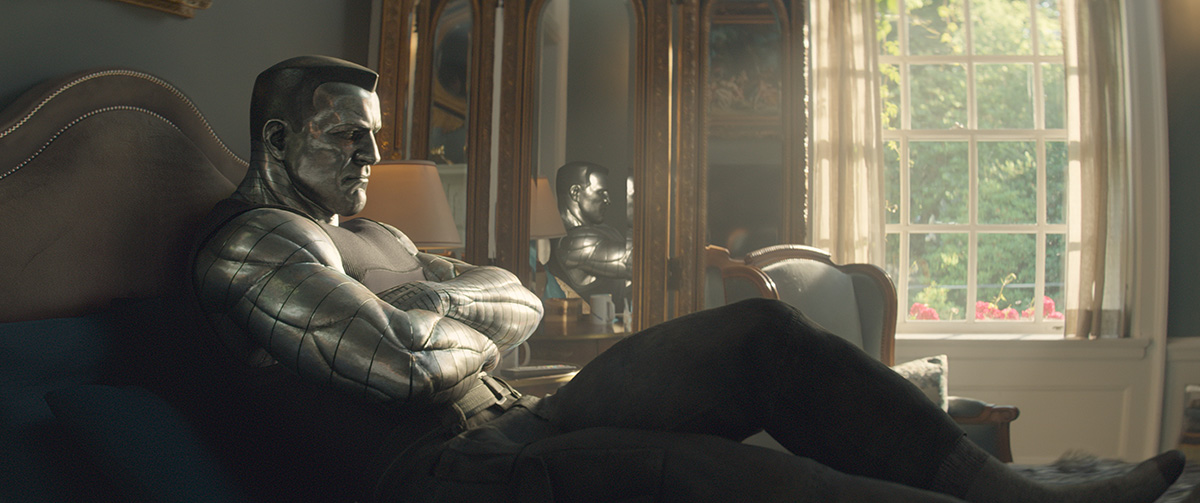
Indeed, establishing the way Colossus’ face moved as he talked was a major challenge for Framestore. Did his metal constituency mean that everything needed to be stiff? Or should it look more like a real human face? In the end, it was somewhat of a balance.
“Playing with different interpolation styles between shapes allowed us to emulate the feel of thick material in the ‘fleshy’ parts of the face,” said Angerer. “This effect was further supported by the way the blend shapes were sculpted with a short fall off, so his animation was always very localized. In the animation of these shapes we aimed to suggest some sort of ‘material build up’ when for example lips curl, or cheeks rise. We also manipulated the speed and snappiness of the jaw and maintained a stern, military look by using simplified but expressive shapes, especially on the brows.”
One way Framestore maintained this stern appearance was by not adding any eye blinks to Colossus. However, some slight ‘noise’ was added to his face in selected movements, such as providing for slight jitter with jaw openings or imperfections on the cheeks. “We also allowed small movements on earlobes and the tip of the nose to keep the face alive,” added Angerer. “The process was more a reduction of movement compared to the facial reference.”
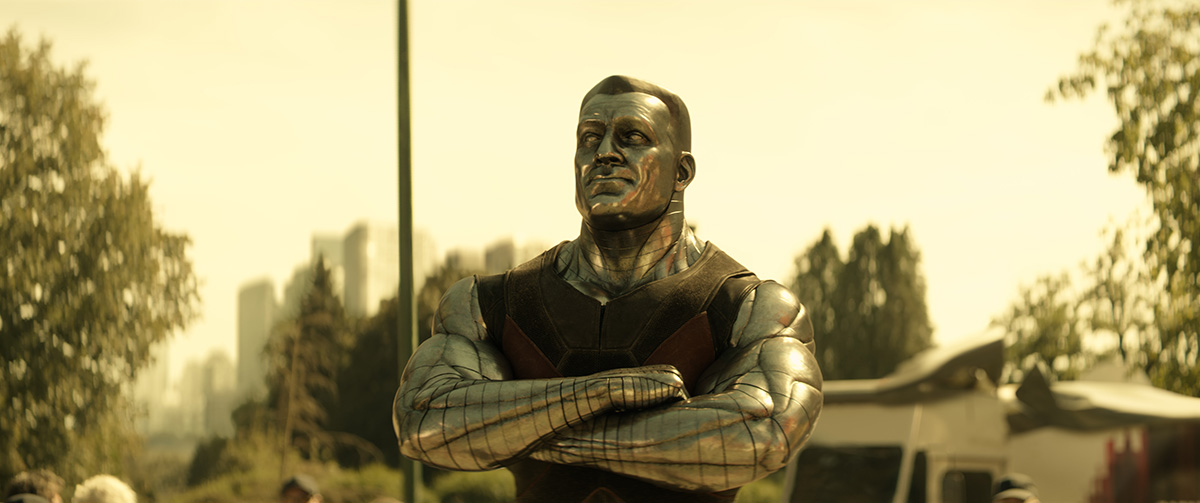
Metal motion
Similar thinking went into the way Colossus’ body should move when he was walking, running, and fighting. Motion capture here was again used for reference, but since the character was eight feet tall and made of metal, a large keyframing effort was required. “We applied an almost 20 percent slow down by default to all the captured references,” said Angerer. “That number is based on the difference in scale between any human performer and Colossus.”
“In our experimentations we went from very smooth human moves to very stiff, almost statuesque poses,” added Angerer. “In the end we found a good balance between him being a tall, tense authority that barely moves in some moments and a fierce, athletic fighter with a surprising range of motions and expressiveness in other situations. The deciding factor was his situation, when he was content we kept him stiff, in the moments he becomes agitated and emotional, Colossus is also more animated and smoother in his movements.”
